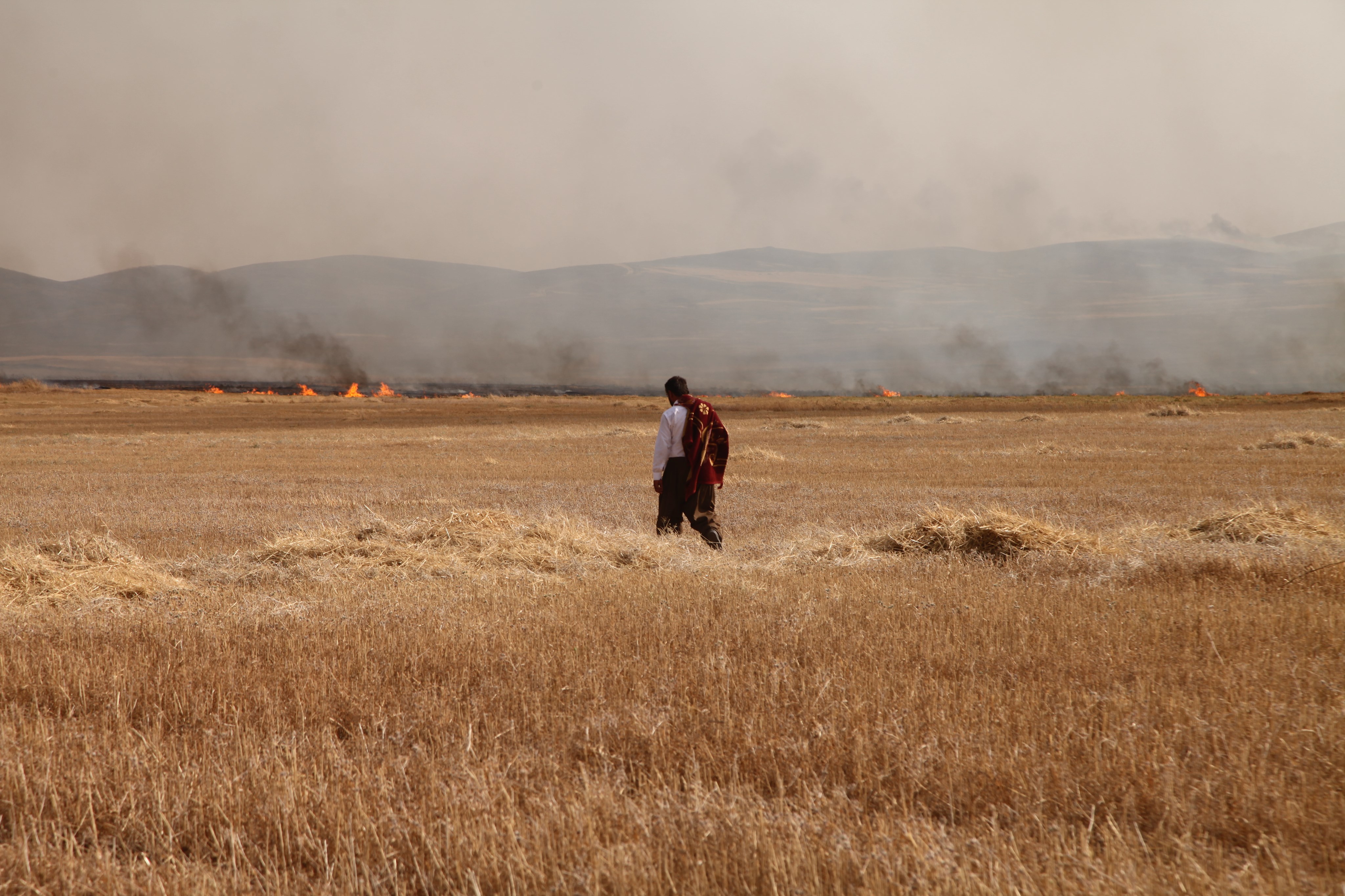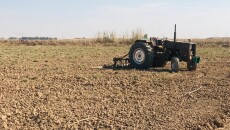The eight Kurdish farmers arrested due to complaint by Arab farmers were released after two hours’ detention in the police station last night, following an understanding between the Kurdish and Arab farmers.
Iraqi army forces arrested eight Kurdish farmers in Mansour village in Haftagar area of southern Kirkuk on Saturday evening, on a complaint by Arab farmers in the same village.
"We were plowing the land and planting sesame seeds when suddenly an Iraqi army force came upon us and arrested us," one of the farmers anonymously told KirkukNow.
Arab farmers in the village were also plowing the land and were not arrested.
"It was because the Arab farmers filed complaints, but the Kurds did not," he said.
In the seventies of the last century, according to a decision of the Supreme Revolutionary Command Council and the Northern Affairs Committee during the rule of the Baath Party, most of the agricultural lands belonging to Kurdish and Turkmen farmers were distributed in several regions of Kirkuk with agricultural contracts to Arab farmers who were brought from central and southern Iraq and settled in Kirkuk, as part of a process Arabization and deportation of Kurdish and Turkmen families.
Ownership of agricultural lands is one of the complicated issues in Kirkuk Governorate and other disputed territories that have remained suspended for 20 years and resulted in tension and clashes between Kurdish, Turkmen and Arab farmers.
The Kurdish and Turkmen farmers claim they are the real owners of the lands confiscated by Saddam regime and given per contracts to Arab settlers.
At least 60,000 hectares of land in the villages of Haftaghar, al-Bu Saraj and al-Najm, have ownership issues and the resolution depends on the implementation of Article 140 of the Iraqi constitution, which has not yet been implemented.
"Our release was only due to the efforts of the elders of Daquq, not due to the intervention of the governor of Kirkuk as some media say," the farmer added.
"When we learned that our arrest was on the complaint of Arab farmers, we wanted to file a complaint so that they could be arrested but the elderly convinced all of us to reconcile.”
The northern oil-rich city of Kirkuk, located 238 kilometers north of Baghdad, is an ethnically mixed province for 1,7 million Kurds, Sunni and Shiite Arabs, and Turkmen. It has long been at the center of disputed territories between Baghdad and Erbil.
In the current cabinet, headed by Muhammad Shia al-Sudani, the Supreme Committee for the Implementation of Article 140 has been reactivated, and one of its main tasks is to resolve the ownership of those agricultural lands.
Under the Iraqi constitution, which the majority of Iraqis voted for in 2005, the fate of the disputed territories must be decided after the completion of the three stages of normalization, census, and referendum, according to Article 140, which was scheduled to be implemented until the end of 2007.






